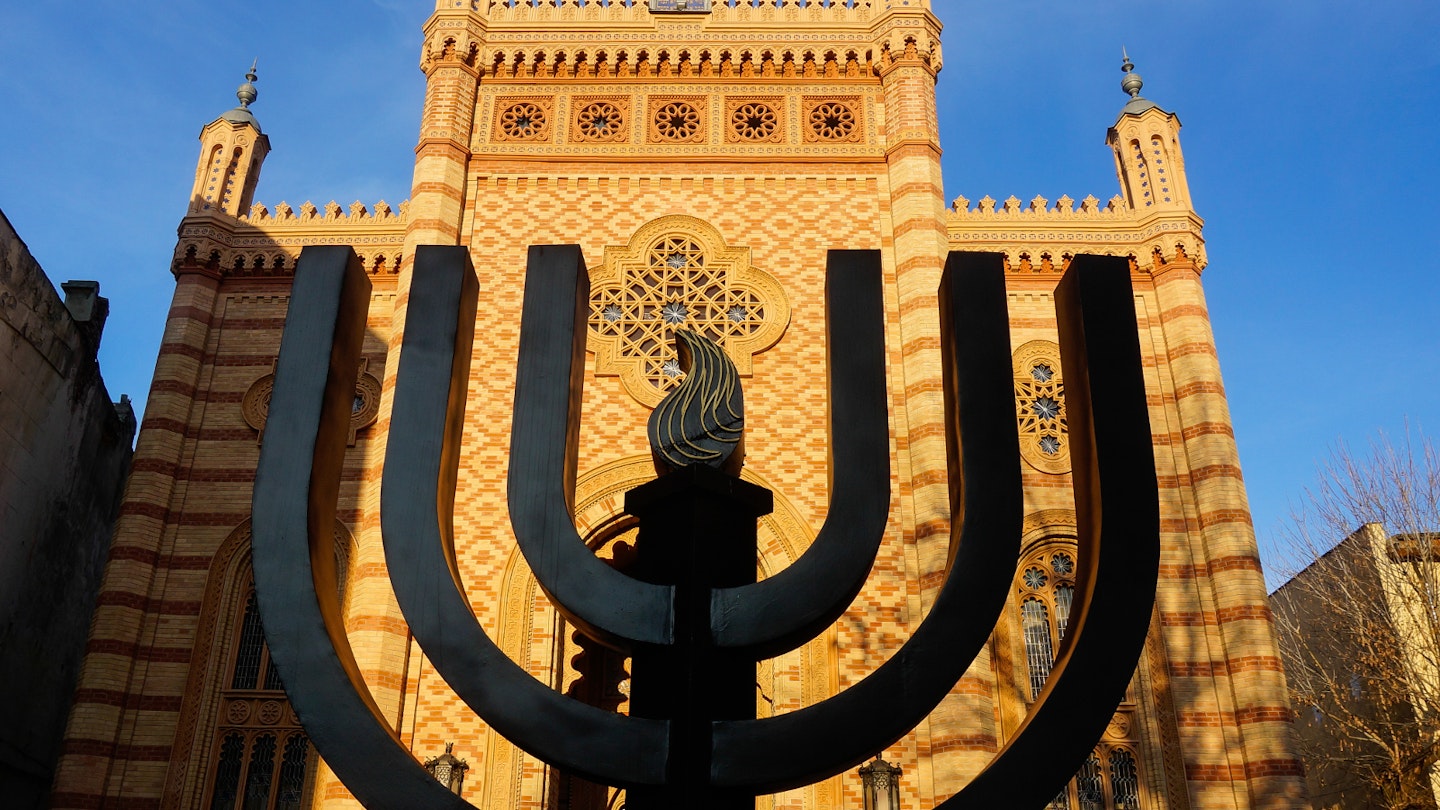Discover Bucharest: A Journey Through History and Nature
You might have come to see exactly how big the Palace of Parliament is or to admire Bucharest’s rise to belle époque fame, but the Romanian capital isn’t just about major sights. This is a city that rewards the curious explorer; its canvas of contrasting architectural styles reflects a dramatic history.
Joining a local tour is the best way to venture off the beaten track and get the most out of Bucharest. Atmospheric ruins, stunning walks, Jewish history, and a unique urban park are among the eclectic, authentic experiences on offer.
Discover Bucharest’s Jewish Heritage
Bucharest’s Jewish district was home to a vibrant Jewish community during the interwar period – some 70,000 people, representing 11% of the city’s population at the time. The majority of the area, spreading from Unirii Square to Dristor, was destroyed during the 1980s demolitions to make room for the infamous Palace of Parliament, the second-largest administrative building in the world. A handful of monuments survived, most of which can be visited. A replica of the Leopoldstädter Tempel (Vienna’s largest synagogue, destroyed in 1938), the red-brick Choral Temple is a stunning example: the interior shines throughout, following an extensive renovation.
In the area, a myriad of residential buildings remain, attesting to the Jewish heritage. The maze of streets is best explored with Bucharest’s Jewish Tours. The most remarkable is the legacy of Marcel Iancu, a Romanian-Israeli architect who co-founded the Dadaist movement and was the brain behind Bucharest’s wealth of modernist architecture. One of his most impressive works is the Solly Gold building, found at 34 Hristo Botev Boulevard.
Stroll Through Cotroceni District
A 10-minute walk from the Palace of Parliament lies Cotroceni, a tree-lined neighbourhood filled with an impressive array of 19th-century and early 20th-century art deco, Neo-Romanian, and modernist villas. Most streets here bear the names of famous doctors, a testament to the district’s historical panache. While you’re in the area, don’t miss the idyllic Infinitea teahouse, an attraction for both its tranquil garden and its cakes and tea selection.
Another reason to visit is the Cotroceni Palace, the official residence of the President of Romania and a baroque palace with an illustrious history. For an authentic local experience, discover the district on an Architectural Treasure Hunt with Vânătoarea de comori arhitecturale: it’s an urban game with a map and a list of clues, for which you’ll have to find windows, doors, bow windows, arcades, and other architectural elements.
Marvel at the Bellu Cemetery
Bearing a remarkable likeness to Paris’ Père Lachaise or Havana’s Colón Cemetery, Bucharest’s Bellu Cemetery (established in 1858 and free to visit) is a national pantheon with almost 300 monuments of funerary art. Strolling the grounds of Bellu Cemetery is a stunning walk through history. From the mysterious ‘Lady with the umbrella’ and the tragic death of young poet Iulia Hașdeu, to the famed alley of writers and artists (the tomb of national poet Mihai Eminescu is always filled with fresh flowers) and celebrated historical figures buried in monumental vaults, each a work of art in itself, Bellu Cemetery is a treasure trove of a thousand stories.
The poetic solemnity of Bellu reveals family dramas, artistic greatness, and scientific inventions, life-like statues guarding noblemen and members of the bourgeoisie – a true hidden highlight from where Bucharest can be better understood. Join a discovery tour with Roaming Romania, or a Darkside Tour with Interesting Times Bureau offering more context into the city’s ‘dark’ times.
Go on an Urban Exploration
When it comes to urban exploration, Bucharest is one of the top cities in the world. Following the fall of communism in 1989, many buildings were returned to their original owners who could no longer maintain the properties, often of large proportions – thus, many fell into decay. In other cases, regaining ownership took decades, contributing to further deterioration. With numerous historical monuments lying abandoned and post-industrial factory buildings increasingly fostering underground art, the city is a paradise for urban explorers. Beautiful Decay Tours by Interesting Times Bureau take you on a journey into Bucharest’s past, granting access to monuments you couldn’t enter on your own.
The resplendent Macca House from 1891, now Institute of Archaeology, is one such example. Further out, behind the National Military Circle on Calea Victoriei, once the headquarters of the largest newspaper in Romania – Adevărul (Romanian for ‘truth’), established in 1898 – is a shell of its former glory. The decrepitude is advanced, but so are its rewards. The 1st floor reveals a foyer with the original logo of Truth Press, as well as other historical names and slogans.
Witness Nature Striking Back in Văcărești
An urban delta in the middle of Bucharest, the Văcărești Natural Park is perhaps the most surprising attraction you’ll find in this busy city. What was supposed to be a 6km-long dam during the communist era, left abandoned after the 1989 Revolution, turned over 22 years into an astonishing urban nature park (183 hectares). The first of its kind in Romania, it has 136 species of birds and 116 types of plants, reptiles, and insects – an entire ecosystem thriving among concrete structures. Otters are also to be found, having made their way from Dâmbovița River. This is one you need to see to believe.
Văcărești was declared a protected nature reserve in 2016. There’s now a marked 8km bike trail and footpath, as well as wooden observation points along the water and trails. Bucharest Walkabout Free Tours are resuming their Wild(about) tours in March 2018, unraveling the history behind this site and exploring the flora and fauna with a park biologist. You can also call ahead to visit the 17th-floor Observatory in Asmita Gardens’ T4 Tower (free entry).





